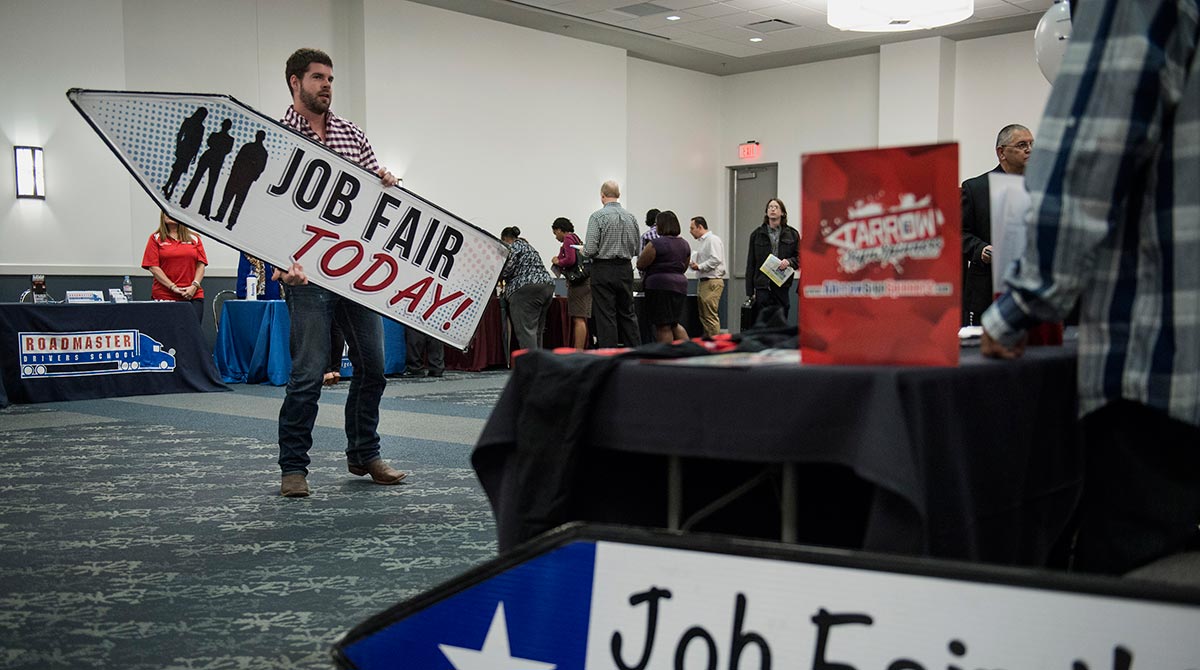Jobless Claims Drop to Five-Month Low

Filings for U.S. unemployment benefits fell last week to the lowest level in five months as the number of layoffs remained consistent with a solid labor market.
Jobless claims dropped by 18,000 to 259,000 in the week ended March 5, the fewest since mid-October, from a revised 277,000 in the prior period, a Labor Department report showed March 10. The median forecast of 48 economists surveyed by Bloomberg News called for 275,000.
Employers are demonstrating an appetite to add to staff and hold off on layoffs based on a brighter U.S. outlook, even as overseas growth sputters and financial markets remain volatile. A tighter job market is slated to slow the pace of hiring this year as workers await a bigger pickup in wages.
“The labor market is holding in, and it’s even more impressive than I think most expected given the backdrop of the volatility in markets,” said Kevin Cummins, an economist at RBS Securities Inc. in Stamford, Connecticut. “Labor demand is very strong, and that comes despite the tightening in financial conditions.”
Estimates in the Bloomberg survey for jobless claims ranged from 259,000 to 285,000. The Labor Department revised the prior week’s reading from an initially reported 278,000.
Last week’s reading approached the four-decade low of 255,000 reached in mid-July. It marked a full year of weekly filings lower than the 300,000 level that economists say is consistent with strength in the labor market.
No states were estimated last week, and nothing unusual was in the data, a Labor Department spokesman said.
The four-week average of claims, a less-volatile measure than the weekly figure, declined to 267,500 from 270,000 in the prior week.
The number of people continuing to receive jobless benefits dropped by 32,000 to 2.23 million in the week ended Feb. 27. The unemployment rate among people eligible for benefits fell to 1.6% from 1.7%. These data are reported with a one-week lag.
On the hiring side of the labor equation, payrolls climbed more than expected in February to a 242,000 advance, while the unemployment rate held at an eight-year low of 4.9%. Average hourly earnings dropped by 0.1% last month, which may have been due to a calendar quirk but called into question how soon workers might expect boosts to their paychecks.
Federal Reserve officials next meet March 15-16 to assess the progress in employment, inflation and growth and to release updated economic projections. Chair Janet Yellen has cited lingering slack in the labor market as one reason to maintain a subdued pace of interest-rate increases.
“We continue to get what Fed officials are calling ‘labor-market improvement’ — more than enough strength to keep the unemployment rate coming down,” Jim O’Sullivan, chief U.S. economist at High Frequency Economics in Valhalla, New York, said before the report.

